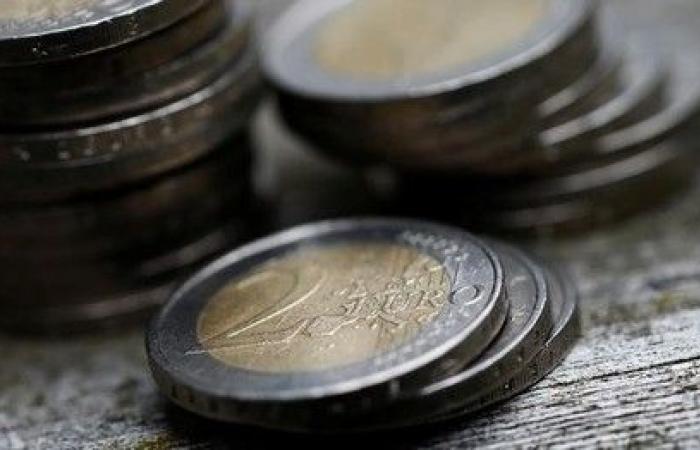slow down
London (awp/afp) – The euro fell back on Tuesday, giving up some of the gains recorded the day before after the first round of the French legislative elections, which continue to worry the market, and also weighed down by the slowdown in price increases in the euro zone.
At around 10:50 GMT (12:50 CET), the single currency fell by 0.22% against the greenback, to 1.0716 dollars, and lost 0.17% against the pound, to 84.75 pence.
“The recovery of the euro and French stocks” in the face of the “relief” after the first round of the French legislative elections “did not last long,” notes Neil Wilson of Finalto.
Ahead of the inflation report, the single currency was already coming back from its gains of Monday. The euro had benefited from the optimism of the markets, estimating that the probability of the National Rally (RN) achieving an absolute majority in the National Assembly had diminished.
The far-right party’s political agenda is likely to increase public debt, investors say.
The possibility of an absolute majority for the RN is not, however, excluded, warns Mr. Wilson.
Without fearing “a euro crisis” or “that an RN government would necessarily cause the collapse” of the French economy “with massive spending”, the analyst notes “a high degree of economic and political uncertainty”.
At the end of the second round on July 7, President Emmanuel Macron could thus enter into direct cohabitation with the RN, or else compose with a minority and technical government, the two most probable scenarios.
For their part, the other parties are trying to prevent the RN from coming to power.
At this stage, according to AFP’s findings, more than 185 candidates have withdrawn from more than 300 possible three-way races at the end of the first round. Among these, for the moment, are a majority of representatives of the New Popular Front but also several ministers.
Inflation in the eurozone also fell slightly in June, slowing as expected to 2.5% over a year, after 2.6% in May, thanks to food and energy prices, according to figures published Tuesday by Eurostat.
The rise in consumer prices is thus once again approaching the 2% target set by the European Central Bank (ECB).
If the monetary institution lowers its rates accordingly, the European currency will see its yields fall, and will lose its appeal in the eyes of investors.
“The fact that services inflation, which is most sensitive to domestic economic conditions, has remained high this year,” including in June, “reinforces the arguments in favor of caution on the part of the ECB,” however, tempers Jack Allen-Reynolds, analyst at Capital Economics.
Tuesday class Monday class
————————————
10H50 GMT 21H00 GMT
EUR/USD 1,0716 1,0740
EUR/JPY 173.22 173.41
EUR/CHF 0.9685 0.9695
EUR/GBP 0,8475 0,8489
USD/JPY 161,65 161,46
USD/CHF 0,9038 0,9027
GBP/USD 1,2644 1,2650
tu/li






